We’re more than tech.
We’re partners in building an ethical, lasting impact.
A digital world is anything but invisible and unaccountable.
Far from leading us towards ‘dematerialization’, the digital realm is in fact highly material in nature.
It’s grounded in numerous physical resources, which have impacts on individuals and society at three key levels: the manufacturing of digital infrastructures, their usage, and their end-of-life disposal.
The entire lifecycle must be considered when discussing the impact of digital technology.
In an era where we’re talking about climate change and planetary limits, it’s essential to really question our practices.
From a societal perspective, we have reached a point where digital technology as it is currently designed is undermining our freedom, privacy and rights.
However, alternatives exist, such as eco-designed and ethical software.
How are we working towards these objectives?
Very few software development companies have a vision and a particular focus on the environmental and social impacts they generate.
For us, this is a crucial issue. We can no longer continue down this digital path.
That’s one of the reasons we choose to work with existing software rather than constantly pushing for full rewrites.
Legacy systems already embed years of knowledge, effort, and resources. Replacing them systematically is costly, risky… and environmentally inefficient. Modernizing what already exists allows us to limit unnecessary complexity and extend the lifespan of critical systems while still enabling innovation.
Working with legacy code is not about resisting change. It’s about making change more responsible, more sustainable, and better aligned with real-world constraints.
Undoubtedly, the transition to a more sustainable and ethical digital landscape, connected to the circular economy and sustainable development, will not happen overnight.
However, we are actively collaborating with the companies that have chosen to place their trust in us and are eager to be part of this change.
At our scale, we’re daily striving to deeply embed these principles into our business model.
Our ambition is to inspire other organizations by contributing to a heightened awareness of the environmental and social implications of digital technology.
At Axoly Tech :
We are committed
- We’ve partnered with SustAIn.brussels, the European hub for digital innovation in Brussels. We are actively following a program to better integrate sustainability into our service offerings.
- Axoly Tech is a signatory of the Sustainable IT Charter since 2023, which marks our commitment to developing more ethical, sustainable, and inclusive digital practices.
- We advocate for the eco-design of digital services and are convinced that another digital way is possible, more ethical and sustainable.
- We guarantee you:
- Software modernized and developed with complete transparency;
- Respect of your privacy and protection of your data, as well as that of your clients;
- Free from aspects related to attention economy and dark patterns;
- No subscription obligations, you’re not locked into a single company and are free to make choices;
- Complete ownership of what has been developed.
We guarantee
- Quality work based on Green Coding and internationally recognized reference guides such as the GR491 and the Green Soft Model.
- Personalized support according to your needs, your context and your structure. Whether you are creating software or need expert technical guidance, whether you are a startup, SME or non-profit, we are here.
- Depending on your preferences, we guide you towards more ethical hosting solutions for your newly developed software.
- Fighting against e-waste by designing your software to ensure usability on older devices.
We keep you informed
- We engage in conferences, round-table discussions, and industry salons to raise awareness about the impacts of technology and share ideas with other professionals in the digital sector, as well as from diverse backgrounds. Interdisciplinarity is essential to us.
- We also offer training sessions, including eco-design, Green IT and ethical and sustainable digital practices. Knowledge transfer is essential to sustain these practices within your organization and to act.
- We share some content on our Articles page and Ignacio’s LinkedIn.

If the digital future matters to you as much as it does to us, then feel free to get in touch!
